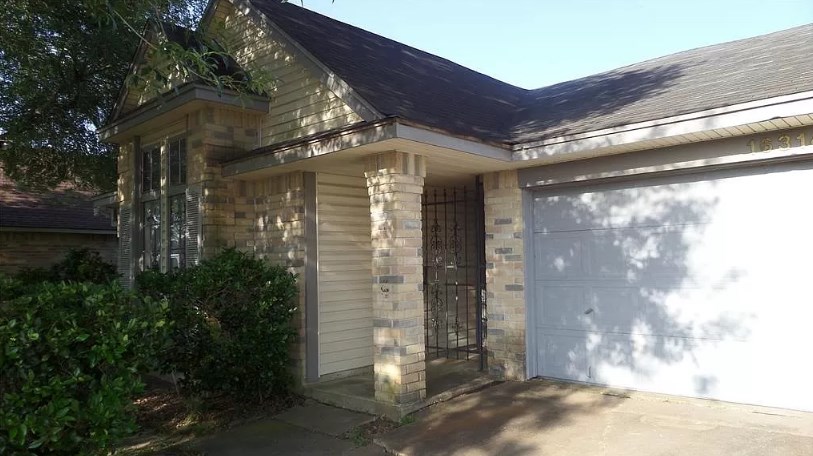 3 Bedroom Houses for Rent Private Landlord – Floor Plans: 3 Bed, 2 Bath, $1,495/mo, 1,084 sqft. Location: 16314 Calistoga Ct, Houston, TX 77053. Contact Property: (832) 280-8000. Amenities; Cooling: Electric, Heating: Natural Gas, Fireplace, Parking: 1 Attached Garage space, Building Type: Single Family. Willowridge High School, Christa Mcauliffe Middle School, and Ridgegate Elementary School are the schools.
3 Bedroom Houses for Rent Private Landlord – Floor Plans: 3 Bed, 2 Bath, $1,495/mo, 1,084 sqft. Location: 16314 Calistoga Ct, Houston, TX 77053. Contact Property: (832) 280-8000. Amenities; Cooling: Electric, Heating: Natural Gas, Fireplace, Parking: 1 Attached Garage space, Building Type: Single Family. Willowridge High School, Christa Mcauliffe Middle School, and Ridgegate Elementary School are the schools.
How to Secure Your Dream Home: 3 Bedroom Houses for Rent by Private Landlords
Renting from a private landlord can offer several benefits compared to renting from a property management company or a large apartment complex. One of the main advantages is the personalized and direct communication with the landlord. Unlike dealing with a property management company, renting from a private landlord allows for a more personal and direct relationship. This can lead to better communication, quicker response times for maintenance issues, and a more flexible approach to lease terms and conditions. Additionally, private landlords may be more willing to negotiate on rent prices or lease terms, as they have more autonomy in decision-making compared to larger property management companies.
Another benefit of renting from a private landlord is the potential for a unique and individualized living experience. Private landlords may own a smaller number of properties, allowing them to invest more time and effort into maintaining and improving their rental units. This can result in a higher quality of living, as private landlords may be more invested in the upkeep and maintenance of their properties. Additionally, renting from a private landlord can offer a more intimate and community-oriented living experience, as landlords may be more involved in the local neighborhood and community, leading to a stronger sense of belonging and connection for tenants.
Understanding Your Budget and Financial Responsibilities
Before renting from a private landlord, it is crucial to have a clear understanding of your budget and financial responsibilities. This includes not only the monthly rent, but also additional costs such as utilities, parking fees, and any potential maintenance or repair costs. It is important to carefully assess your financial situation and create a budget that takes into account all of these expenses, to ensure that you can comfortably afford the rental property.
In addition to the monthly rent, tenants should also be aware of any upfront costs associated with renting from a private landlord. This may include a security deposit, first and last month’s rent, and potential application or administrative fees. It is important to carefully review the lease agreement and understand the terms and conditions related to these upfront costs, as well as the process for receiving the security return the deposit at the conclusion of the lease. By understanding your budget and financial responsibilities upfront, you can avoid any potential financial strain or surprises during your tenancy.
Researching and Selecting the Right Neighborhood
When renting from a private landlord, it is essential to thoroughly research and select the right neighborhood for your needs and preferences. Consider factors such as proximity to work or school, access to public transportation, nearby amenities and services, and the overall safety and livability of the neighborhood. Take the time to explore different neighborhoods and consider factors such as noise levels, traffic patterns, and the overall vibe and atmosphere of the area.
In addition to physical characteristics, it is also important to consider the community and social aspects of the neighborhood. Research local events, community organizations, and neighborhood associations to get a sense of community engagement and social opportunities in the area. By selecting the right neighborhood, you can enhance your overall living experience and feel more connected to your surroundings. This can also contribute to a positive relationship with your landlord, as they may appreciate tenants who are invested in the local community and take pride in their neighborhood.
Negotiating Lease Terms and Conditions
When renting from a private landlord, there may be more flexibility in negotiating lease terms and conditions compared to larger property management companies. Take the time to carefully review the lease agreement and consider any terms or conditions that may be negotiable. This could include the length of the lease, the amount of the security deposit, pet policies, or potential rent increases. By approaching the negotiation process with a respectful and open-minded attitude, you may be able to reach a mutually beneficial agreement with your landlord.
It is important to communicate openly and honestly with your landlord about your needs and concerns and to be prepared to offer compromises or alternatives when negotiating lease terms. Keep in mind that the goal is to reach an agreement that is fair and reasonable for both parties and that fosters a positive and respectful relationship throughout the tenancy. By negotiating lease terms and conditions in a thoughtful and considerate manner, you can set the stage for a positive and harmonious living experience in your rental property.
Inspecting the Property and Identifying Potential Issues
Before signing a lease agreement with a private landlord, it is crucial to thoroughly inspect the rental property and identify any potential issues or concerns. Take the time to carefully walk through the property and assess the condition of the unit, including the functionality of appliances, plumbing fixtures, and heating and cooling systems. Look for signs of water damage, mold, or pest infestations, and ask the landlord about any recent maintenance or repairs that have been completed.
In addition to the interior of the property, it is also important to assess the exterior and common areas of the building or complex. Consider factors such as the condition of the roof, windows, and landscaping, as well as the overall cleanliness and maintenance of the property. If you identify any potential issues or concerns during the inspection, be sure to communicate these to the landlord and discuss potential solutions or remedies. By thoroughly inspecting the property before moving in, you can avoid any potential disputes or misunderstandings related to the condition of the unit during your tenancy.
Comprehending Your Tenant Rights and Obligations
As a tenant renting from a private landlord, it is important to have a clear understanding of your rights and responsibilities under the lease agreement and local tenant laws. Take the time to carefully review the lease agreement and familiarize yourself with the terms and conditions related to rent payments, maintenance and repairs, and any potential restrictions or rules related to the use of the property. Additionally, research local tenant laws and regulations to ensure that you are aware of your rights and protections as a tenant.
In addition to understanding your rights, it is also important to fulfill your responsibilities as a tenant. This includes paying rent on time, maintaining the property in a clean and sanitary condition, and respecting the landlord’s rules and regulations. By fulfilling your responsibilities as a tenant, you can build a positive and respectful relationship with your landlord, and contribute to a harmonious living environment for yourself and your neighbors. If you have any questions or concerns related to your rights and responsibilities as a tenant, do not hesitate to communicate with your landlord and seek clarification or guidance.
Building a Positive Relationship with Your Landlord
Building a positive and respectful relationship with your landlord is essential for a harmonious and enjoyable living experience. Take the time to communicate openly and honestly with your landlord, and to address any concerns or issues in a respectful and considerate manner. This can help to foster a sense of trust and mutual respect and can lead to quicker response times for maintenance and repairs, as well as potential flexibility in lease terms and conditions.
In addition to open communication, consider ways to contribute to a positive relationship with your landlord. This could include being a considerate and respectful neighbor, participating in community events or activities, and taking pride in the upkeep and maintenance of the property. By demonstrating your commitment to being a responsible and respectful tenant, you can build a positive and lasting relationship with your landlord, and contribute to a more enjoyable living experience for yourself and your neighbors.
Securing the Property with Insurance and Security Measures
When renting from a private landlord, it is important to take steps to secure the property and protect your personal belongings. Consider investing in renter’s insurance to provide coverage for potential losses or damages to your personal property, as well as liability protection in the event of accidents or injuries on the property. Additionally, discuss potential security measures with your landlord, such as installing deadbolt locks, security cameras, or alarm systems, to enhance the safety and security of the property.
By taking proactive steps to secure the property, you can have peace of mind and feel more comfortable in your living environment. This can also contribute to a positive relationship with your landlord, as they may appreciate tenants who take an active interest in the safety and security of the property. By working together with your landlord to implement security measures, you can contribute to a safer and more secure living environment for yourself and your neighbors.
Maintaining the Property and Respecting the Landlord’s Rules
As a tenant renting from a private landlord, it is important to maintain the property in a clean and sanitary condition and to respect the landlord’s rules and regulations. This includes promptly reporting any maintenance or repair issues to the landlord, and taking care to avoid any damage or neglect to the property. Additionally, be mindful of any rules related to noise levels, parking, or the use of common areas, and strive to be a considerate and respectful neighbor.
By maintaining the property and respecting the landlord’s rules, you can contribute to a positive and harmonious living environment for yourself and your neighbors. This can also help to build a positive relationship with your landlord, as they may appreciate tenants who take pride in the upkeep and maintenance of the property. By fulfilling your responsibilities as a tenant and respecting the landlord’s rules, you can contribute to a positive and enjoyable living experience for yourself and your neighbors.
Planning for the Future: Renewing Your Lease or Moving On
As your lease term approaches its end, it is important to carefully consider your options for the future. If you have had a positive and enjoyable experience renting from a private landlord, you may wish to renew your lease and continue living in the property. In this case, communicate openly and honestly with your landlord about your intentions to renew the lease, and discuss any potential changes or updates to the lease terms and conditions.
On the other hand, if you are considering moving on to a new living situation, be sure to communicate with your landlord in a timely and respectful manner. Provide notice of your intention to move out according to the terms of the lease agreement, and work with your landlord to ensure a smooth and orderly transition. By planning for the future in a thoughtful and considerate manner, you can maintain a positive relationship with your landlord and leave on good terms, while also setting the stage for a positive and enjoyable living experience in your next rental property.
 Houses for Rent Finding info about Houses for rent
Houses for Rent Finding info about Houses for rent




